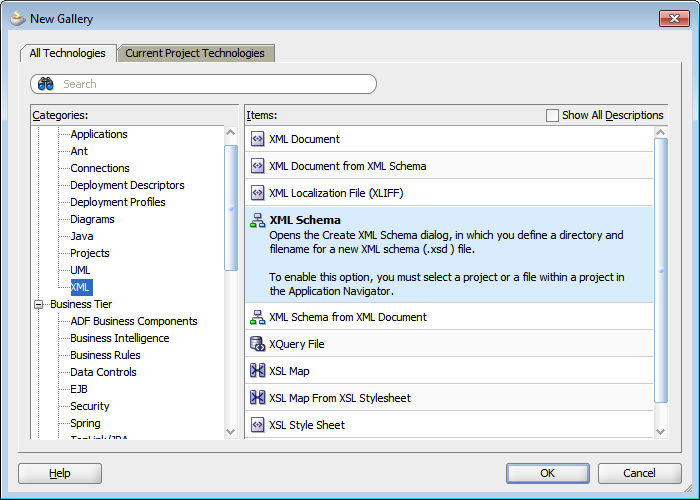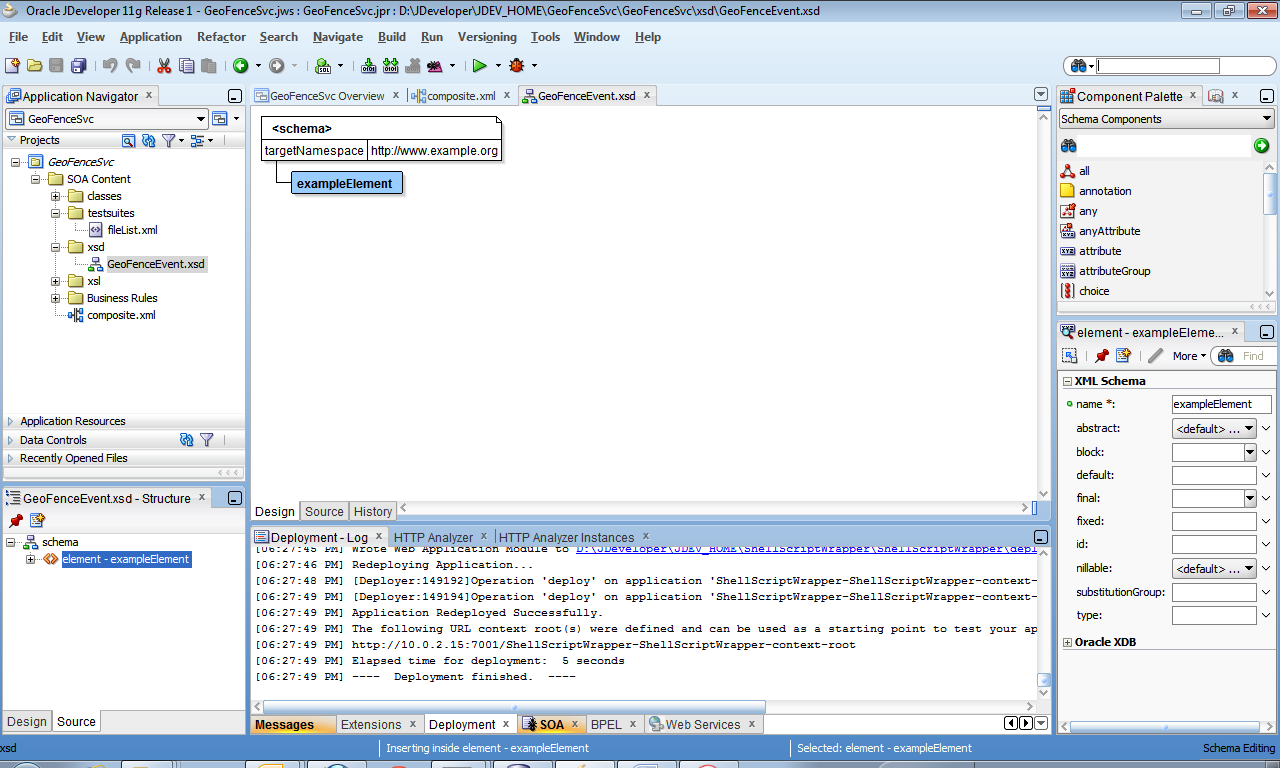Adding service
interface - start with XML Schema
We’ll be creating two interfaces to our geo service – one
that is web services based and another one that is file based.
We’ll start by creating a web service interface that is handy
for testing purposes.
Start by creating the xml schema for the new service. For
the GeoFence Event we need the following elements:
·
ObjectId (xsd:string)
·
AssetId (xsd:string)
·
LocationId (xsd:string)
·
EventTime (xsd:datetime)
·
EventClass (xsd:string)
·
EventSeverity (xsd:string)
·
EventText (xsd:string)
Make sure you create it into xsd
folder.
Rename the example element into geoFenceRequest
Add sequence to it and add the element inside the sequence.
You can add the sequence by dragging and dropping the sequence on top of the
element.
Add elements inside the sequence either by dragging and dropping or via the popup menus.
Next we’ll do the response part. We send in a single element
but there could be multiple actions as a result. Hence we should actually
return a list of return values for each action.
We can do this with a little bit different mechanism. First we create a complex type that consists of:
We can do this with a little bit different mechanism. First we create a complex type that consists of:
-
Action (what script we executed)
-
Result code
-
Result text (we’ll leave this empty for this
sample program)
And we finally define an element as a sequence of element of
this type.
Start by defining a complex type called
geoFenceResponseType.
-
Drag and drop the ComplexType elemen to the
canvas.
-
Add sequence to it
-
Add elements Action (xsd:string), ResultCode
(xsd:integer) and ResultText ( xsd:string) to it
-
Add an element called geoFenceResponse.
-
Set the type of the geoFenceResponse to the
geoFenceResponseType





Ei kommentteja:
Lähetä kommentti